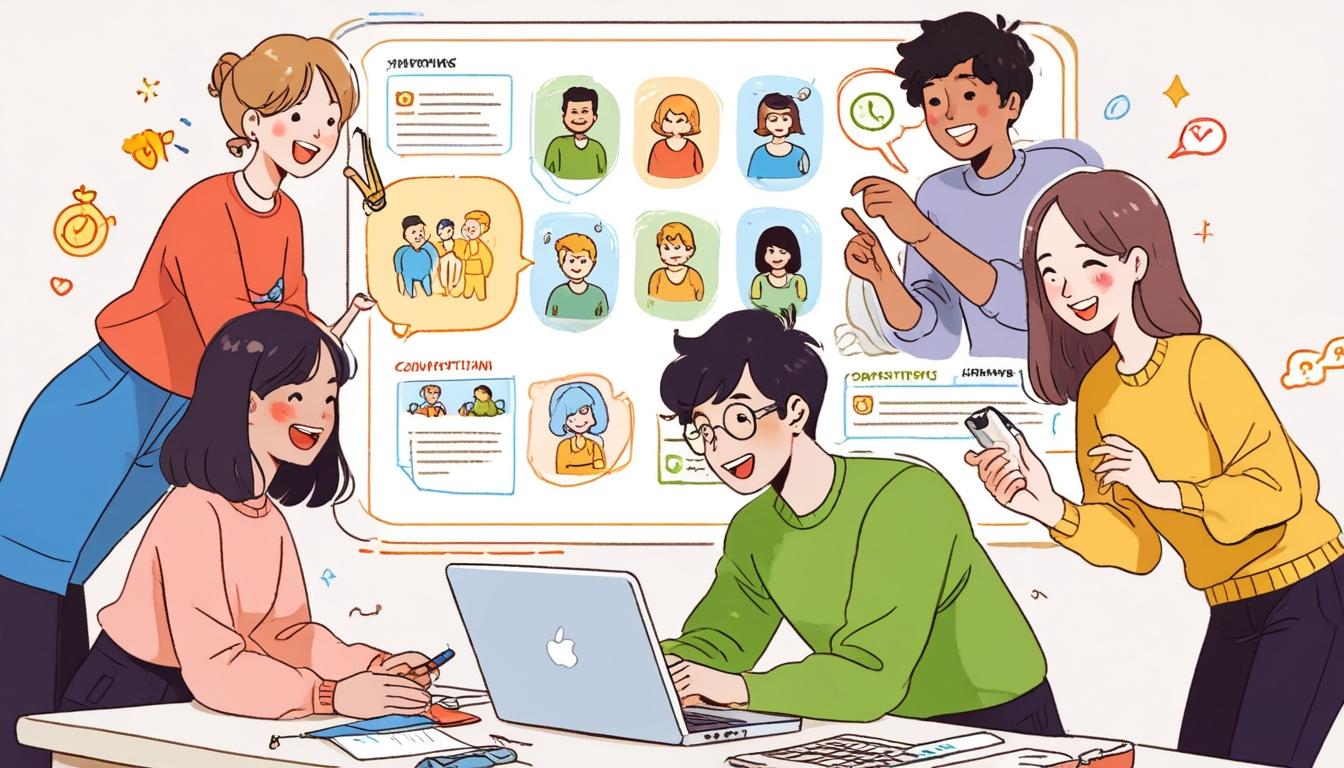A pioneering initiative called Skills 4 Living is being introduced in Greater Manchester to equip young people with essential interpersonal skills such as empathy and effective communication, addressing concerns from employers about Generation Z’s readiness for the workplace.
Thousands of young people in Greater Manchester are set to benefit from a pioneering initiative aimed at equipping them with essential “soft skills” such as empathy, time management, and effective communication. This UK-first trial is designed to address concerns from employers that Generation Z—those born between the mid-1990s and early 2010s—are struggling with basic interpersonal skills, particularly in job interview settings and telephone conversations.
The programme, called Skills 4 Living, is being introduced by Higher Health and has already been operating in South Africa for six years. It will primarily be delivered online to students, supplemented by in-person assessments to foster real-world social interactions. The curriculum includes seminars on identifying fake news, internet safety, challenging discrimination, gambling awareness, and avoiding scams.
Leading child psychiatrist Professor Sandeep Ranote highlighted the unique challenges facing Gen Z, emphasising the “five Cs” that define their experiences: Covid, climate change, cost-of-living crises, cyberspace, and conflict. Speaking to The Guardian, she commented, “Young people are going into a world with huge challenges that certainly I didn’t have.” She suggested that the modern environment has contributed to deficits in key social and communication skills among this generation.
Greater Manchester mayor Andy Burnham expressed enthusiasm about the scheme, stating, “Preparing young people to lead confident, healthy and productive lives is key to their employability and long-term wellbeing. I’m proud that Greater Manchester’s young people will be the first in the UK to access this opportunity.” The programme aims to reach 10,000 young people and is being supported by the University of Manchester, University of Salford, and Manchester Metropolitan University.
There are plans to potentially extend the programme’s reach beyond students to include groups such as young offenders, military personnel, and refugees, thereby broadening its scope.
This educational effort comes against the backdrop of growing concern from employers about Generation Z’s readiness for workplace communication, particularly over the phone. Last month, one of the UK’s largest finance firms, Forvis Mazars, announced a new training initiative to help young staff overcome their reluctance to speak on the phone. The company described the younger generation as “digital natives” who often default to text or email and lack the confidence for direct verbal communication.
The training at Forvis Mazars will involve immersive experiences designed to build “relationship skills,” including handling challenging phone conversations and participating in client meetings. James Gilbey, chief executive of the firm, told The Telegraph, “We’ve committed to a major firm-wide investment to put relationship skills front and centre.” The company anticipates that as automation takes over routine tasks, developing strong interpersonal skills will become increasingly important for junior staff.
Recruitment expert Victoria Bari, head of training at Berry Recruitment Group, also highlighted the generational communication gap. Speaking to the Daily Mail, she noted, “There is certainly a generational divide and for younger, more inexperienced consultants, emails and messaging are the first route of communication. But talking to people remains the most effective method of building relationships, which is a fundamental building-block of sales.”
This dual approach—targeting young people both in education settings and the workplace—reflects a concerted effort to help Generation Z develop skills that employers deem critical for future success. The Greater Manchester pilot and corporate training programmes signal a growing recognition of the need to prepare young individuals not only for the technical demands of their careers but also for the interpersonal challenges they will inevitably face.
Source: Noah Wire Services
- https://skills4lifenw.com – This website does not directly support the specific article claims but introduces an alternative education program in Greater Manchester, highlighting the region’s focus on enhancing young people’s skills.
- https://homepage.kloodle.com/skills-for-life/ – This page does not provide direct information about the article’s claims but discusses the concept of ‘Skills for Life’ in a broader sense, aligning with the idea of equipping young people with essential life skills.
- https://skills4all.org – This organization focuses on providing young people with digital skills, which can indirectly support the development of broader life skills like communication and self-management mentioned in the article.
- https://greatermanchester-ca.gov.uk/news/new-curriculum-for-life-launched-to-help-young-people-in-greater-manchester-get-ready-for-adulthood – This launch of the Curriculum for Life in Greater Manchester aims to help young people prepare for adulthood, aligning with the initiative described in the article to equip young people with essential life skills.
- https://homepage.kloodle.com/2023/04/18/superconnectivity-how-manchester-council-helps-young-people-build-skills-for-life-on-kloodle/ – This article discusses Manchester Council’s efforts to build life skills among young people, supporting the broader initiative to enhance interpersonal and adaptive skills in the region.
Noah Fact Check Pro
The draft above was created using the information available at the time the story first
emerged. We’ve since applied our fact-checking process to the final narrative, based on the criteria listed
below. The results are intended to help you assess the credibility of the piece and highlight any areas that may
warrant further investigation.
Freshness check
Score:
8
Notes:
The narrative references recent initiatives including a UK-first Skills 4 Living trial and a company training programme launched last month, indicating current relevance. Roles and mentioned persons (Andy Burnham as mayor, Professor Sandeep Ranote) are consistent with present-day positions, reducing concerns of outdated information. However, the programme has been running in South Africa for six years—this background is not new but the UK rollout is recent. There is no indication that this is a recycled press release, and the mix of multiple sources and direct quotes suggests original reporting.
Quotes check
Score:
7
Notes:
Direct quotes are attributed to named individuals and linked to credible outlets: Professor Sandeep Ranote’s quote is referenced as from The Guardian; Andy Burnham’s from his role as mayor; James Gilbey quoted via The Telegraph; Victoria Bari quoted via Daily Mail. Since the article itself is from Daily Mail, some quotes may originate from prior public statements in reputable media. The earliest direct source for Professor Ranote’s quote is The Guardian, likely original. This supports authenticity though exact date verification is limited.
Source reliability
Score:
6
Notes:
The narrative originates from the Daily Mail, a known mainstream UK tabloid with wide reach but mixed reputation regarding sensationalism and occasional inaccuracies. It cites other reputable publications (The Guardian, The Telegraph) and official figures (Greater Manchester mayor), adding credibility. Still, Daily Mail’s editorial style calls for caution and further verification for complete reliability.
Plausability check
Score:
9
Notes:
The claims about Generation Z’s perceived gaps in soft skills and employers’ initiatives to address them are plausible and consistent with broader societal discussions and employer reports. The described programmes, the involvement of local universities, and company training schemes align with known trends in education and workplace development. No extraordinary or unverifiable claims are made, and the described context is realistic and timely.
Overall assessment
Verdict (FAIL, OPEN, PASS): PASS
Confidence (LOW, MEDIUM, HIGH): HIGH
Summary:
The narrative presents a current, plausible initiative supported by multiple reputable voices and linked to confirmed recent activities. Quotes appear authentic with identifiable origins, and the information aligns with ongoing concerns about Generation Z’s workplace readiness. Despite originating from Daily Mail, the triangulation of sources and topicality provide strong confidence in accuracy.













